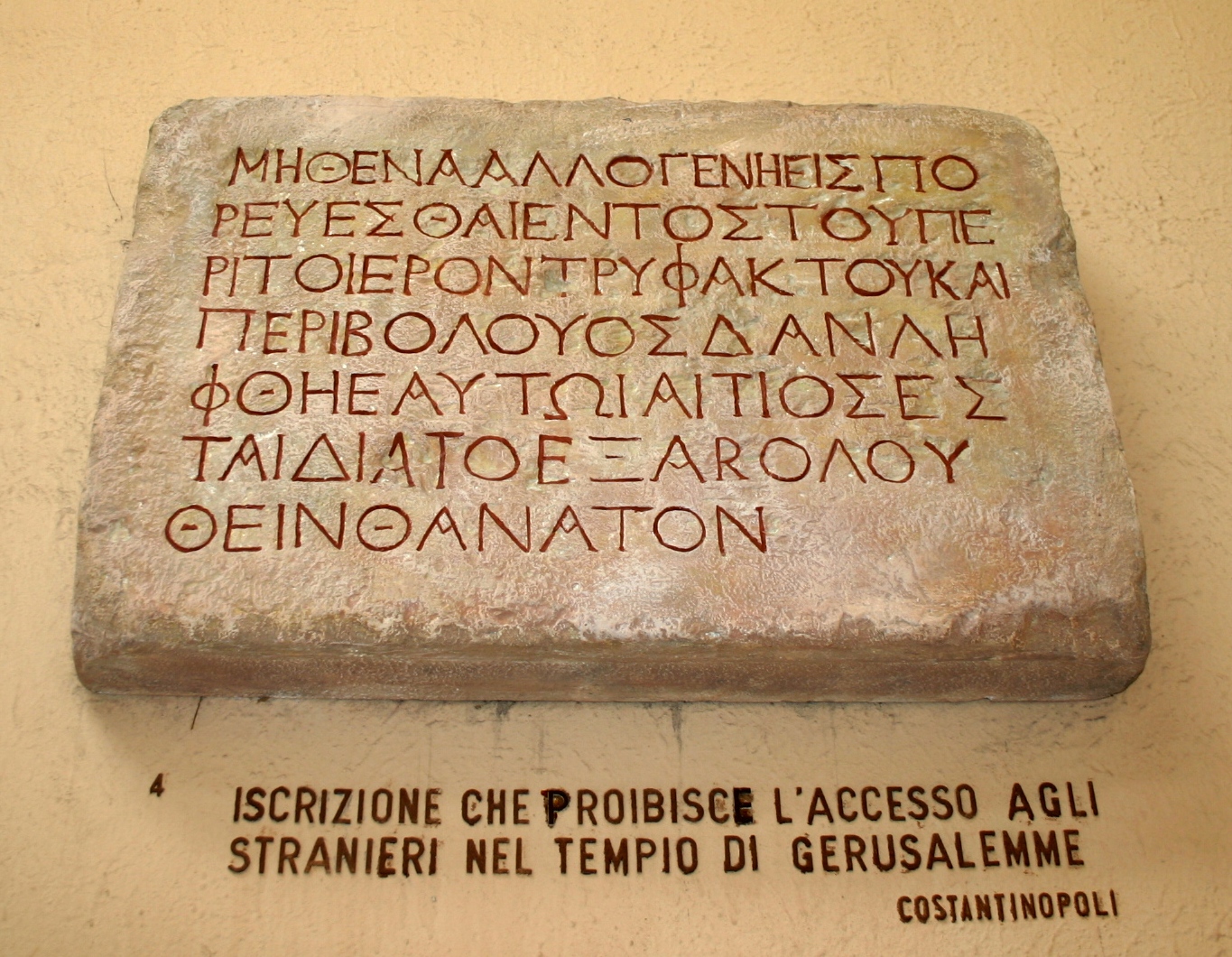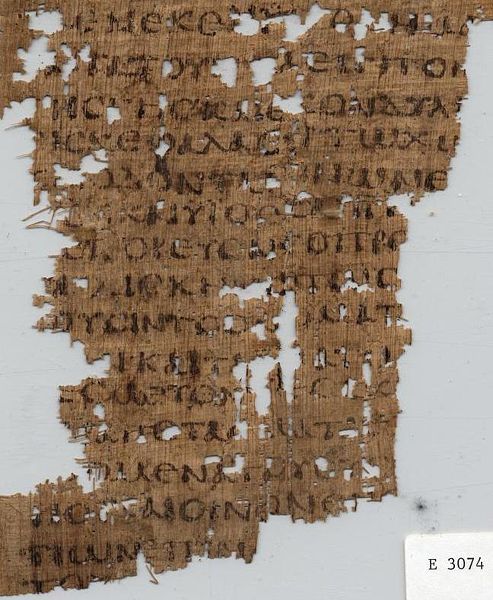Jesus’ Food Is Ours
Seventeenth Sunday of the Year B (26 Jul 2015)
Homily of Fr. Paul Panaretos, S.J.
Bishop Persico endorsed the suggestion to pray to the Holy Spirit this weekend throughout our diocese. We ask Holy Spirit to grace each of us and our Pastoral Planning Process.1 The recently-arrived August issue of Faith Magazine focuses our prayer: our diocese “pastoral planning [seeks] to strengthen parish ministries, enhance the life of parishes and schools, make the church more responsible as a steward of limited resources and create a stronger, more viable and capable church to carry out the mission of Jesus Christ.”2
_-_James_Tissot.jpg) In a word pastoral planning is about mission, Jesus’ mission. The church serves the world in Jesus’ name. After the Vatican Council closed in 1965 the church in its local incarnations worldwide has been engaged in pastoral planning. The Council realized the church was in the world, the modern world. It freed the church to touch the joys, hopes, griefs and anxieties of modern people.3 Jesus did the very same among his peers.
In a word pastoral planning is about mission, Jesus’ mission. The church serves the world in Jesus’ name. After the Vatican Council closed in 1965 the church in its local incarnations worldwide has been engaged in pastoral planning. The Council realized the church was in the world, the modern world. It freed the church to touch the joys, hopes, griefs and anxieties of modern people.3 Jesus did the very same among his peers.
When Jesus placed himself in the joys, hopes, griefs and anxieties of his contemporaries, some were scandalized. They had decided he ignored or slighted God; he did not.To celebrate with the joyful; to long with those who hoped in God; to weep with the grieving; and to honor the anxious: Jesus respected the dignity of each person as created in the divine image. For that Jesus was among people, close to people, concerned for people.
Among people, close to people, concerned for people express a human hallmark: we are social. The church is social because it is an assembly of people who worship God in risen Jesus by Holy Spirit; who rejoice and grieve with each other; and who live for others in imitation of Jesus.4
The mission of the church continues Jesus’ mission. Pope Francis embodies Jesus’ mission as our example. He is joyful and full of hope; he does not turn from griefs or anxieties.5 He models how to grow more sensitive to people on the margins.
Today’s gospel reminds us that attending to the sick—as important as that is—did not absolve Jesus from nourishing the large crowd [that] followed him. The gospel clues us to that: Jesus knew what he was going to do. Pastoral planning helps us know how to act like Jesus. It considers the many faces of nourishing each and every Catholic in our diocese—strengthening Catholic education; parish life and ministries; using resources better to help us bring Jesus to everyone in ways that defend and deepen each one’s dignity.
Nourishing body and spirit is the prophetic vocation of the church. Pastoral planning is the ongoing process helping us be prophetic. Pastoral planning reawakens and reconnects us to risen Jesus and his prophetic mission. Pastoral planning equips us to live in a manner worthy of who we are: one with Jesus as his body in the world by the power of his Spirit.
 Holy Spirit empowers us each moment. Holy Spirit guides us as we discern how our parish and our diocese can live more like Jesus. St. Paul sketched Jesus’ way and invites us to let ourselves be recreated to live it with all humility and gentleness, with patience, bearing with one another through love, striving to preserve the unity of the spirit through the bond of peace.
Holy Spirit empowers us each moment. Holy Spirit guides us as we discern how our parish and our diocese can live more like Jesus. St. Paul sketched Jesus’ way and invites us to let ourselves be recreated to live it with all humility and gentleness, with patience, bearing with one another through love, striving to preserve the unity of the spirit through the bond of peace.
Are those possible for us to do? The readings remind us we easily dismiss what we consider impossible. God worked through Elijah and Jesus and people received superabundantly. Creation and recreation happen by the Spirit’s power. From Jesus’ Spirit flows abundance to answer…the needs the Diocese of Erie faces. Prayer informs pastoral planning; prayer also opens us to the possibilities Holy Spirit will create anew and lavish on us and our diocese as we make Jesus present.6
In your daily 15 minutes with Jesus this week
- Rest in our triune God.
- Ask our diocesan patron, St. Patrick, and our parish patrons, Sts. Michael and Margaret, to present you to Jesus.
- Chat with him: praise him for dying and rising for you; thank him for inviting you to follow him and be his ambassadors here and now.
- Ask Jesus for grace to enter our diocesan pastoral planning process with greater freedom.
- Close saying slowly the Lord’s Prayer. His words, give us…our daily bread, include diocesan pastoral planning. Jesus’ food gave everyone access to God’s saving work.7 His prayer recreates us more like Jesus and empowers us to do the same work the entrusts to us.
Link to this homily’s Spiritual Exercise
______________
- Faith Magazine, August 2015 issue, p. 23.
- “The Basics,” in August 2015 issue, p. 7.
- Its final document immediately noticed them. Church in the Modern World, 1.
- Philippians 2.3; 1Peter 4.10; Hebrews 13.16; 1Corinthians 12.28.
- For words, recall him with the survivors of Typhoon Haiyan; images of him including all abound.
- The Prayer-Planning-Possibilities: the motto of the current pastoral planning process.
- John 4.34.
____________
Wiki-images: Jesus feeds thousands PD-US Planning logo of Diocese of Erie

_-_James_Tissot_-_overall.jpg)


_-_James_Tissot.jpg)

_-_James_Tissot.jpg)